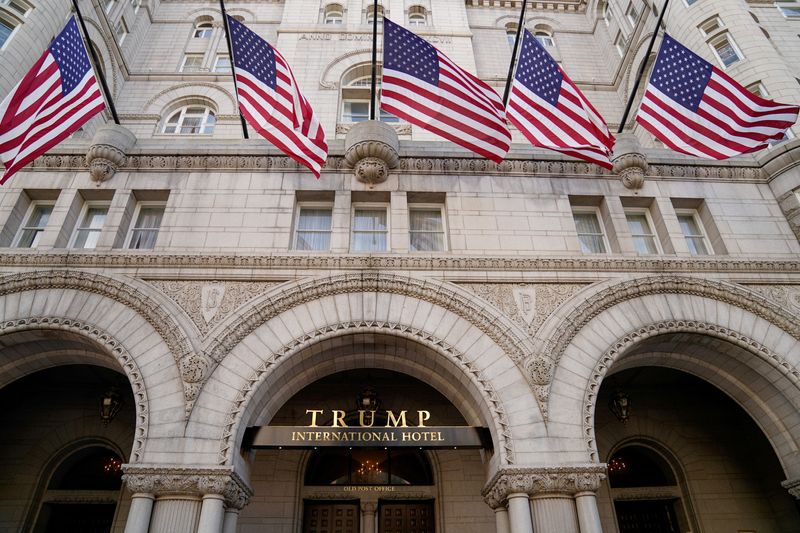By John Kruzel
WASHINGTON (Reuters) -The U.S. Supreme Court on Monday ordered the dismissal of a lawsuit by a group of congressional Democrats who had sought details about a government lease for a Washington hotel covering the time when it was owned by Republican former President Donald Trump.
The court acted after the lawmakers this month voluntarily dropped their 2017 lawsuit against the General Services Administration (GSA), the agency that manages federal government real estate, focused on what was called the Trump International Hotel. The justices last month had agreed to hear a bid by President Joe Biden's administration to block the lawsuit.
Seventeen Democratic members of the House of Representatives Oversight and Reform Committee sued the GSA, seeking information about a 2013 lease of the Old Post Office building just a few blocks from the White House to Trump's company to convert it into a hotel. The hotel became a gathering spot for Trump supporters, lobbyists and foreign dignitaries.
The Trump Organization last year completed the $375 million sale of the hotel's lease to an investment firm that planned to rebrand the property.
The case pursued by the lawmakers had tested whether small groups of legislators have the proper legal standing to sue to enforce a federal law aimed at obtaining information from federal agencies. The GSA had rejected several requests by Democrats, whose party was then - as today - in the minority in the House, saying they lacked the authority as individual members to conduct oversight.
A federal judge had previously dismissed the lawsuit, finding that the committee members did not as legislators suffer the kind of legal injury that would entitle them to sue.
The U.S. Court of Appeals for the District of Columbia Circuit revived the case in 2020, concluding: "A rebuffed request for information to which the requester is statutorily entitled is a concrete, particularized and individualized personal injury."
Biden's Justice Department, defending the GSA, had appealed the case to the Supreme Court, saying that the case could set an unwelcome precedent by allowing just a few members of Congress, even fringe members of a minority party, to distract and harass executive branch officials.
David Vladeck, a lawyer representing the lawmakers, said the justices on Monday did "exactly what we asked the Supreme Court to do."

Vladeck pointed to Democratic U.S. House member Jamie Raskin's comments this month that the GSA produced the vast majority of records requested, enabling the lawmakers to make public Trump's receipt of millions of dollars in "emoluments" from foreign governments and the Secret Service, as well as his efforts to conceal millions of dollars in losses from the hotel.
The U.S. Constitution's "emoluments" clauses bar federal officials from accepting gifts from foreign governments without congressional approval, and the president from receiving gifts from states. Trump argued that Democratic lawmakers were reading the emoluments clauses too broadly and that the nation's founders were prohibiting outright bribes.